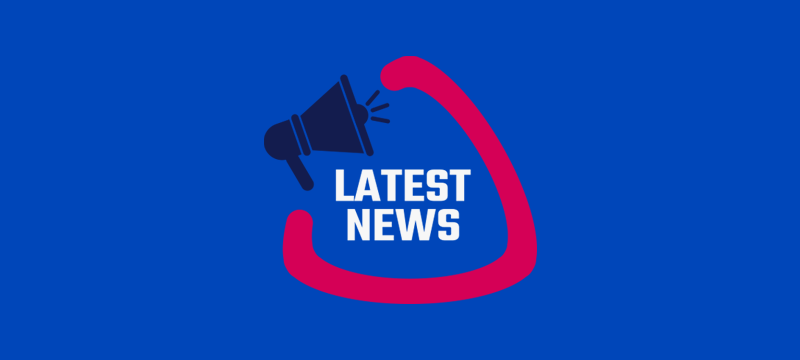Welcome to our latest round-up of news from the technology and hosting world. Here’s what we’ve discovered this week.
UK tech to make the orbit safer
While it might not seem as aspirational as landing on Mars, the UK Space Agency’s plans for Britain to become the leader in orbital safety are still rather hi-tech. Indeed, without orbital monitoring, planetary travel, such as NASA’s planned 2024 moon landing, might not be able to take place at all. Currently, there are estimated to be almost a million manmade objects larger than 1cm orbiting the earth, all travelling at high velocity and capable of taking down a spacecraft or satellite in a collision.
The risk of collision means the enormous quantities of space junk needs to be monitored. To that end, the UK Space Agency has recently given grants worth £1m to seven innovative companies in an attempt to find novel approaches to tracking orbital debris, with the particular aim of developing advanced sensors to detect it and algorithms to interpret the data. This way, working satellites and spacecraft can be kept out of harm’s way.
As for cleaning up the orbit, much of the space junk will eventually fall to earth or get burned up during re-entry into the atmosphere, though it can take a 1 kg satellite orbiting at 600 km around 32 years to fall to earth.
Hydrogen-powered lorry actually using gravity
Brands spend enormous amounts on videos to make their hi-tech products look great, but you shouldn’t believe everything you see. In a recent promo video, US vehicle manufacturer, Nikola, showed one of its hydrogen-powered lorries travelling through the desert. The 1,000 HP, zero-emission Nikola One semi-truck, as it was touted, was actually travelling downhill and powered by nothing other than gravity.
Unfortunately for Nikola, the truth was discovered and the company has since found itself being investigated by the US Securities and Exchange Commission for false advertising and misleading investors. Although the company says it now has a working model, it has admitted that at the time the video was shot, it did not have an operational hydrogen fuel cell.
The company will finally begin production of the hydrogen-powered vehicles in 2022, using hydrogen fuel cells from General Motors. Before that, it will begin manufacturing battery-powered vehicles. However, the bad publicity from the video has caused its share price and that of General Motors to drop.
Boris data leak uncovers Chinese surveillance
A leaked database that contained the personal details of nearly two and a half million people, including those of Boris Johnson and members of the royal family, has been linked to Chinese surveillance.
According to reports in The Telegraph, the database had been put together by Chinese tech firm, Zenhua Data, with much of the data scraped from social media. However, security experts are claiming that the leak is evidence that the data is being used by the Chinese Communist Party to assist its surveillance operations.
The data of over 40,000 UK nationals was included in the database, which contained names, dates of birth, educational histories, CVs, criminal records and social media accounts. Data on UK businesses was also uncovered.
Microsoft 365 hacking vulnerability
Vulnerabilities in Microsoft 365’s multi-factor authentication protocols enable cybercriminals to access user accounts and steal the files, emails, contacts and other data from its cloud storage. Additionally, the flaw would also allow hackers to access other Microsoft cloud-hosted services that the user had subscribed to, such as Visual Studio or Microsoft Azure.
According to the US security company, Proofpoint, Microsoft’s multi-factor authentication uses the WS-Trust security standard to renew and validate security tokens and to establish trusted connections. However, those security standards have vulnerabilities that enable hackers using a spoof IP address to bypass multi-factor authentications or make the system misidentify the protocol to give unauthorised user access.
Multi-factor authentication has become increasingly popular for businesses with remote workers during the pandemic and this has made this form of attack particularly appealing to cybercriminals.
Singapore tackles health with cheap Apple watches
Singapore wants to use a health and activity monitoring app from the Apple App Store to help improve general public health. The app, LumiHealth, provides personalised activity goals and wellness challenges and monitors how well users meet them. It also offers tips and encouragement on healthy eating, sleep and mental wellbeing depending on what your health goals are and how well the app sees you performing.
To participate, however, users need to wear an Apple Watch, of which the cheapest version in Singapore is around $420. To increase the numbers signing up to the new health programme, the country has introduced a scheme that rewards participants with vouchers if they meet their weekly goals. These can be redeemed against the cost of the watch. Throughout the two-year programme, those taking part could earn up to $380 in rewards, cutting the cost of the watch by 90%
This is part of Singapore’s efforts to become a Smart Nation, one which, according to its Deputy Prime Minister, Heng Swee Keat, uses digital technology to improve the lives of our people.
Visit our website for more news, blog posts, knowledge base articles and information on our wide range of hosting services.



